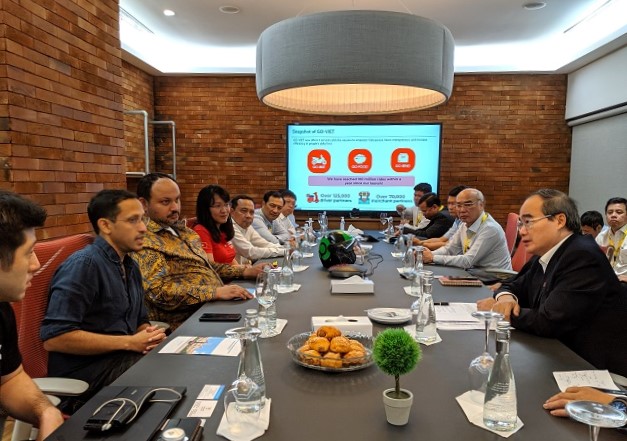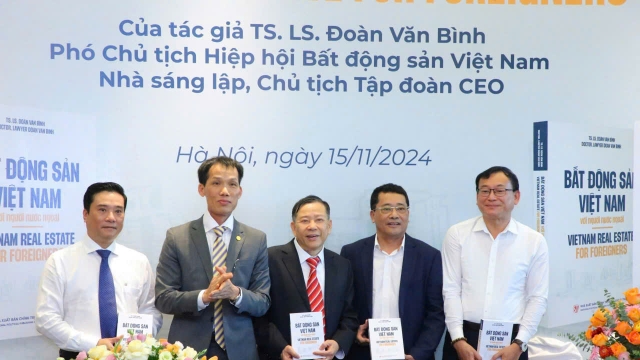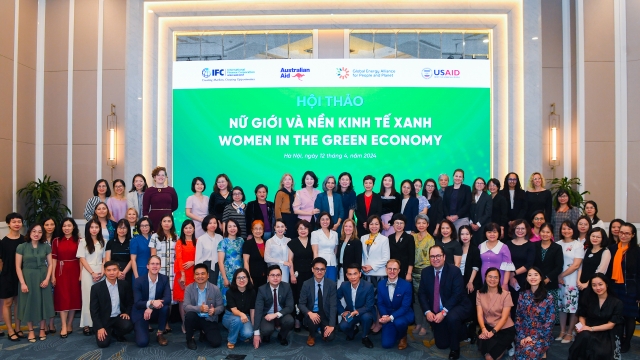National Focus
Ho Chi Minh City seeks to replicate Gojek model into its smart city planning
The southern economic hub of Vietnam is paying attention on model and solutions implemented by the Indonesian ride-hailing service, desiring to apply them in its smart city development.
During his working visit to Indonesia on August 21-23, politburo member and secretary of the Ho Chi Minh City Party Committee Nguyen Thien Nhan has paid a visit to the country’s first unicorn Gojek. Nhan was very keen on copying Gojek’s sharing economy model and its advanced solutions to apply in Vietnam.
The leader of Ho Chi Minh City was impressed with how the on-demand multi-service platform and digital payment technology group has attempted to supplement the public transport system in Indonesia, as well as its cooperation with the Indonesian government to offer a stable income stream to local residents and facilitate the economic development for many micro and small- and medium-sized enterprises.

Nhan and the high-level delegates of Ho Chi Minh have thus suggested various collaborations between GoViet and the city in its planning and development targets, aimed at building Ho Chi Minh City into a smart city.
“The conversation between the high-level delegation of Ho Chi Minh City and Gojek has touched on the power of an ecosystem-based economic model, and the importance of cooperation between the government and the private sector. We are extremely excited as both of these can be fully realised in Vietnam in the near future,” said Le Diep Kieu Trang, CEO of GoViet.
“GoViet hopes to apply Gojek’s model and soon become a super app that helps connect the supply and demand in the market and provide more services to cater to the needs of the Vietnamese people.”
Last year, Gojek officially launched its operation in Vietnam in partnership GoViet, starting with two-wheel ride hailing and then courier and food delivery.
In its home country, Gojek has changed the life of many people who are now opting for its ride-hailing service to travel from home to almost everywhere and vice versa. In 2018, Gojek contributed some $3.85 billion to the Indonesian economy.
Gojek currently operates in Indonesia, Vietnam, Singapore, Thailand, and the Philippines. It is the only company in Southeast Asia that is included in Fortune’s 50 Companies That Changed the World in 2017 and 2019, ranked at 17 and 11 respectively. As of February 2019, the estimated value of the company is about $10 billion.
Gojek has been backed by Astra International, Google, Mitsubishi, Sequoia, Northstar, Temasek Holdings, KKR, Warburg Pincus, Visa, Parallon, Tencent, JD.com, and some others.
GoViet accomplished 100 million rides after first year launch
Resolution 68: A turning point in Vietnam's private sector policy
As Vietnam sets its sights on becoming a high-income country by 2045, Resolution 68 lays a crucial foundation. But turning vision into reality requires not only good policy - but also unwavering execution, mutual trust and national unity.
Vietnam plans upgrade of Gia Binh airport to dual-use international hub
Vietnam plans to upgrade Gia Binh Airport in Bac Ninh province into a dual-use international airport to support both military and civilian operations, the government said on Friday.
Lives under the scorching sun: Outdoor workers racing against climate change
Under unforgiving conditions, the outdoor workers - the backbone of urban economies - endure the harshest impacts of climate change while remaining overlooked by social safety nets. Their resilience and struggles highlight the urgent need for better protection in the face of rising temperatures and precarious livelihoods.
CEO Group chairman unveils guide to Vietnam real estate for foreigners
Doan Van Binh, Chairman of CEO Group and Vice President of the Vietnam National Real Estate Association, introduced his latest book, “Vietnam Real Estate for Foreigners,” at a launch event in Hanoi on Friday.
Women leading the charge in Vietnam's green transition
Acting for increased women’s participation and leadership in climate action, Vietnam can accelerate a transition that is more inclusive, just, and impactful.
Steam for girls: A journey of passionate and creative girls
The "Steam for girls 2024" competition provides a creative platform for Steam and an opportunity for students to connect with peers from various regions within Vietnam and internationally.










































